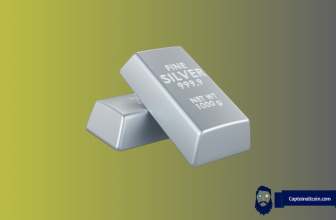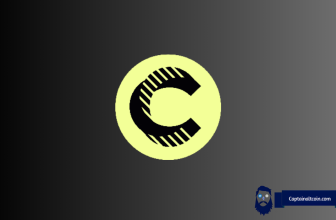
Popular crypto analyst Lyn Alden hit the headlines recently after she predicted that Bitcoin (BTC) could potentially hit $200k over the next two years. Alden based her forecast on the correlation seen in the past between Bitcoin’s price cycles and global liquidity levels.
The other tokens that have taken the crypto market by storm are InQubeta (QUBE) and Injective (INJ). The two cryptocurrencies have drawn global attention with their robust growth which comes shortly after they secured new funding.
While Injective is a developer-friendly blockchain used for building world-class dApps, InQubeta assists startups in finding investors for their AI projects. InQubeta’s cryptocurrency ICO has so far raised $8.2 million.
What you'll learn 👉
InQubeta: Helping AI startups gain confidence
InQubeta helps startups secure funding for AI projects without the usual hassle of meetings, agreements, and procedural delays. With InQubeta, companies and investors can interact through a transparent investment model, which allows fractional investment of NFTs. The NFTs traded on the platform represent offers submitted by startups for their investors.
The platform has created a native cryptocurrency known as the QUBE token, which is the official mode of payment on the network. QUBE is one of the new altcoins that has received a lot of praise from experts due to its unique use case.
Token holders can stake it to earn passive income. The staking rewards are given out from a separate pool that’s financed by tax collections.
The token has also been hailed due to its deflationary model, which controls the asset’s supply to prevent loss of value when inflation is high. By keeping the supply less than the demand, the deflationary model creates an artificial scarcity and ensures competitive prices.
If the supply increases, tokens are destroyed through burning.
The token burn mechanism also comes in handy while dealing with internal inflation, which usually occurs during tax collections. The InQubeta team charges a nominal tax during the sale or purchase of the QUBE token.
Before the tax proceeds are invested back into the platform, a small portion is burned to prevent the supply from increasing.
InQubeta has designed a transparent NFT marketplace where startups and investors can safely interact. The NFTs sold at the portal are based on offers submitted by startups and talk about how a project can benefit the investor. These NFTs can be fractionalised and have to be bought with QUBE tokens.
Once the transaction is complete, the proceeds are transferred to the startup.

ICON to integrate Injective
Injective is a Layer 1 blockchain where developers can find all tools needed for deploying future-ready dApps. Its native token INJ is the primary cryptocurrency of the Injective network.
Apart from dApps, developers can create customized DeFi solutions with the blockchain. They can also leverage plug-and-play modules and liquidity support to speed up innovation.
Injective has cemented its position in the market as one of the top cryptos to invest in after it secured new funding sources. Going by its solid growth, analysts suggest that it might make more sense for INJ holders to increase their holdings.
In a recent development, Injective announced its integration with blockchain company ICON. The collaboration between the two networks would boost their interoperability and pave the way for innovations in the DeFi ecosystem.
US SEC approves world’s first Bitcoin ETF
Bitcoin is still one of the most user-friendly crypto assets in the world. Its native cryptocurrency is BTC, and new tokens are generated through mining.
The professionals involved in the process are called miners who either work independently or as part of a mining pool. All BTC transactions are confirmed with the proof-of-work consensus algorithm.
Bitcoin’s popularity witnessed a steady rise in 2023 after multiple analysts vouched for its prospects. Macro analyst Lyn Alden also recently stated that it has the potential to reach $200k over the next two years.
The permissionless cryptocurrency unlocked a new milestone after the US Securities and Exchange Commission approved applications of multiple firms to roll out spot Bitcoin ETFs. The move would allow institutional investors and companies to increase their exposure to Bitcoin without owning any.

Conclusion
What does an ideal crypto portfolio look like? Some would say a diversified group of assets, others might go for tokens with high growth potential, while someone else might prioritize security over other factors. InQubeta, Injective, and Bitcoin are built on models that are an amalgamation of all these features.
These tokens have emerged as the best altcoins for 2023, and analysts believe that these coins are set to repeat the feat in 2024. These cryptocurrencies can help you secure your future while keeping up with the latest developments in the DeFi sector.
DISCLAIMER: CAPTAINALTCOIN DOES NOT ENDORSE INVESTING IN ANY PROJECT MENTIONED IN SPONSORED ARTICLES. EXERCISE CAUTION AND DO THOROUGH RESEARCH BEFORE INVESTING YOUR MONEY. CaptainAltcoin takes no responsibility for its accuracy or quality. This content was not written by CaptainAltcoin’s team. We strongly advise readers to do their own thorough research before interacting with any featured companies. The information provided is not financial or legal advice. Neither CaptainAltcoin nor any third party recommends buying or selling any financial products. Investing in crypto assets is high-risk; consider the potential for loss. Any investment decisions made based on this content are at the sole risk of the readCaptainAltcoin is not liable for any damages or losses from using or relying on this content.






